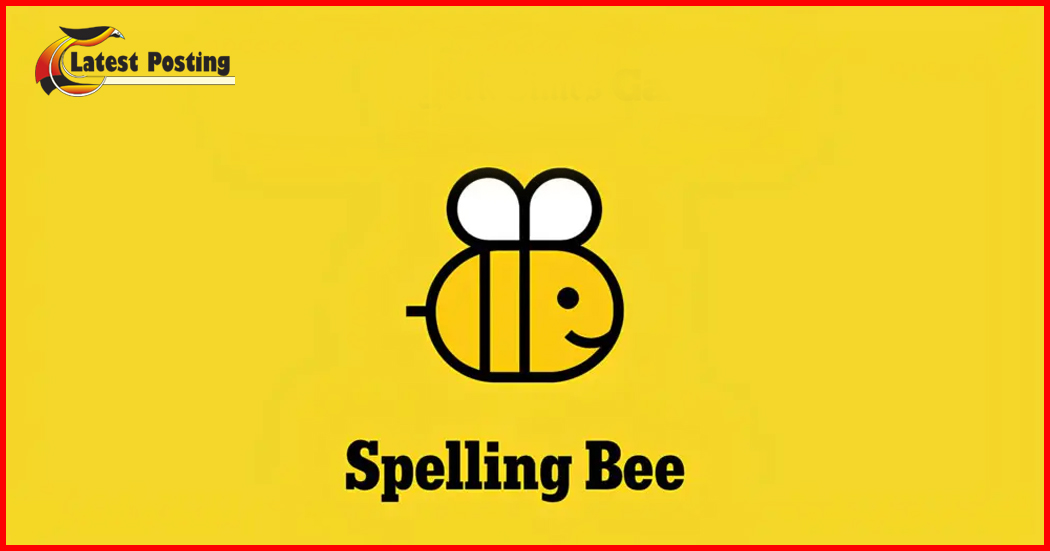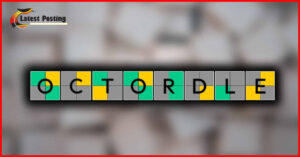In the realm of language mastery, few competitions rival the intensity and precision demanded by spelling bees. For contestants, finding the right spelling bee answers isn’t merely about memorizing dictionaries but understanding the intricate rules and patterns of language. In this comprehensive guide, we delve into the strategies, techniques, and resources that pave the path to spelling bee success.
What is spelling bee
In the electrifying world of spelling bees, contestants face a thrilling challenge: spelling words with precision and accuracy under pressure. Behind every successful speller lies a combination of preparation, strategy, and a deep understanding of language mechanics.
At its core, mastering spelling bee answers involves more than just memorization; it’s about understanding the rules and patterns of language. Contestants meticulously study word origins, phonetic patterns, and mnemonic devices to navigate the complexities of spelling.
Preparation is key. Contestants immerse themselves in dictionaries, meticulously comb through word lists provided by organizers, and utilize vocabulary-building tools and practice tests. They train their minds to recognize word roots, decipher phonetic cues, and apply contextual analysis to unfamiliar words.
But success in spelling bees isn’t just about knowing how to spell; it’s about thriving under pressure. Contestants must summon their knowledge swiftly and accurately amidst the tension of competition.
In the end, spelling bee answers aren’t just letters on a page—they’re a testament to the dedication and linguistic prowess of those who dare to step onto the stage.
Understanding the Mechanics of Spelling Bee Answers
At the heart of every spelling bee lies a meticulous selection of words that challenge participants’ linguistic prowess. Whether it’s deciphering the etymology of a word or recognizing phonetic patterns, contestants must possess a multifaceted understanding of spelling conventions. Success hinges on a combination of memorization, phonetics, and linguistic analysis.

Strategies for Mastering Spelling Bee Answers
- Word Roots and Origins: Many English words originate from Latin, Greek, or other languages. Understanding these roots can provide valuable clues for spelling. For instance, the Latin root “aud” means “hear,” which is evident in words like “audience” and “auditory.”
- Phonetic Patterns: Recognizing common phonetic patterns can aid in spelling unfamiliar words. For example, knowing that “tion” often represents a “shun” sound helps in spelling words like “information” or “congratulation.”
- Mnemonic Devices: Mnemonics, such as acronyms or rhymes, can help in remembering complex spellings. For instance, “Big Elephants Can Always Understand Small Elephants” helps recall the spelling of “because.”
- Contextual Analysis: Understanding the context of a word can provide hints about its spelling. Analyzing the word’s meaning, part of speech, and related words can guide contestants to the correct spelling.
Resources for Spelling Bee Preparation
- Dictionaries: Comprehensive dictionaries like Merriam-Webster or Oxford English Dictionary are indispensable resources for spelling bee contestants. Online platforms such as Dictionary.com offer quick access to definitions, pronunciations, and etymologies.
- Word Lists: Spelling bee organizers often provide word lists that outline the vocabulary range for the competition. Studying these lists meticulously can familiarize contestants with potential words and their spellings.
- Vocabulary Building Tools: Websites and apps like Vocabulary.com or Quizlet offer interactive ways to expand vocabulary and reinforce spelling skills through quizzes, games, and flashcards.
- Practice Tests: Regular practice tests simulate the intensity of the actual spelling bee environment, helping contestants hone their speed and accuracy in spelling a wide range of words.
The Road to Spelling Bee Success
Achieving mastery in spelling bee competitions requires dedication, perseverance, and a systematic approach to learning. By leveraging effective strategies, utilizing resources judiciously, and embracing the thrill of linguistic exploration, contestants can navigate the challenges of spelling bee answers with confidence.
In conclusion, spelling bee competitions represent a fascinating intersection of language proficiency and cognitive agility. Behind every correct spelling lies a wealth of linguistic knowledge and strategic thinking. With the right tools and techniques, aspiring spellers can unlock the secrets to spelling bee success and embark on a journey of linguistic discovery.
Common FAQs
Spelling bees captivate audiences and challenge participants with their unique blend of linguistic skill and mental agility. Aspiring spellers and curious observers often have questions about the intricacies of spelling bee answers. Here are some frequently asked questions along with their answers:
1. What exactly is a spelling bee?
- A spelling bee is a competition where participants are asked to spell words orally. It typically involves rounds of increasingly difficult words until only one speller remains.
2. How are spelling bee words selected?
- Spelling bee words are often chosen from curated lists that encompass a wide range of vocabulary levels. These lists may include words from various sources, including textbooks, literature, and standardized tests.
3. Do contestants receive the definitions of words during a spelling bee?
- In most spelling bee competitions, contestants are not provided with definitions. They are solely tasked with spelling the word correctly based on its pronunciation and any relevant clues.
4. Are there any age restrictions for participating in spelling bees?
- Spelling bee competitions may have different age categories, allowing participants of various ages to compete against peers of similar age groups. Some competitions may also have specific eligibility criteria based on school enrollment or geographic location.
5. How do contestants prepare for spelling bees?
- Contestants prepare for spelling bees by studying word lists, practicing spelling words orally, and familiarizing themselves with spelling patterns, phonetics, and etymology. Many also participate in mock spelling bees to simulate the competition environment.
6. What happens if a contestant misspells a word?
- If a contestant misspells a word, they are typically eliminated from the competition. In some formats, they may be given one opportunity to ask for the word to be repeated or for additional information before spelling it again.
7. Are there any strategies for improving spelling bee performance?
- Strategies for spelling bee success include studying word roots and patterns, practicing consistently, developing mnemonic devices, and mastering techniques for managing nerves under pressure.
8. Can anyone participate in a spelling bee?
- While many spelling bees are open to the public or specific demographics, some may require participants to meet certain qualifications or advance through regional or local competitions to qualify for higher-level events.




